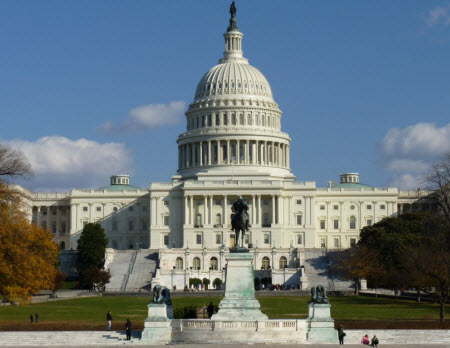Shapiro Pitches Hill on Invalidating Broadband Privacy Rules
The smarter way to stay on top of the multichannel video marketplace. Sign up below.
You are now subscribed
Your newsletter sign-up was successful

Consumer Technology Association president Gary Shapiro went to the Hill Wednesday to pitch reconsideration of the FCC's broadband privacy framework.
CTA joined with cable operators and others last week in petitioning the commission, now under the control of Republicans opposed to that framework, to stay the implementation of the rules.
Shapiro told a Senate Commerce Committee hearing on "Reducing Unnecessary Regulatory Burdens" that the framework "threatens the current and future viability of and the innovations that have come from a vibrant Internet," including by classifying Web browsing and app use information collected by ISPs as sensitive and requiring opt-in consent. No such requirement is made of edge providers like Google or Facebook by the Federal Trade Commission, which oversees their data privacy.
"The result is broad regulatory overreach over the internet by the FCC that creates legal uncertainty,” he said.
Shapiro called on legislators to step in, using the Congressional Review Act to invalidate the FCC broadband privacy rules.
Shapiro put in a plug for using an "actual harm" test for regulation, "rather than the ex ante [before the fact] approach the FCC has more recently favored."
Former FCC chairman Tom Wheeler often talked of the need to anticipate how ISPs, which he said had the incentive and ability, could engage in anticompetitive conduct, and regulate accordingly.
The smarter way to stay on top of the multichannel video marketplace. Sign up below.
Shapiro also put in a plug for regulatory humility, citing acting FTC chair Maureen Ohlhausen, and for a revise of the 1996 Telecommunications Act, calling regulation "a blunt and static" instrument.
Commerce Committee Chairman John Thune (R-S.D.) asked Shapiro why he was speaking out against the rules, which apply to ISPs rather than consumer tech companies. He pointed out that some of those ISPs are also members of his association, but that beyond that, the FCC.s to bootstrapping of authority from the Open Internet order to regulate content was confusing to the marketplace in general.
A terse Sen. Ed Markey (D-Mass.) countered that the FCC's privacy rules are important protections for tens of millions and that he would fight any effort of the Congress by the CRA or otherwise to roll them back, likening them to protections against Russian hacking.
Sen. Roger Wicker (R-Miss.) asked Shapiro's take on the FCC's Open Internet order, which Wicker called unecessary to advance Internet openness.
Shapiro said that the key to an open Internet was more broadband Internet access competition. He said "the whole issue would go away" if there were multiple broadband providers and that the key was faster broadband, lower prices and more competition.
Contributing editor John Eggerton has been an editor and/or writer on media regulation, legislation and policy for over four decades, including covering the FCC, FTC, Congress, the major media trade associations, and the federal courts. In addition to Multichannel News and Broadcasting + Cable, his work has appeared in Radio World, TV Technology, TV Fax, This Week in Consumer Electronics, Variety and the Encyclopedia Britannica.

